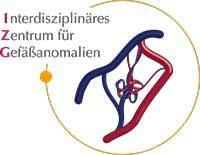Neuroendocrine Tumor (NET) of the Pancreas — Embolization or Chemoembolization: treatment in the Best Hospitals of Germany
Treatment prices are regulated by national law of the corresponding countries, but can also include additional hospital coefficients. In order to receive the individual cost calculation, please send us the request and medical records.
Pancreatic Cancer Treatment in Germany
- Pancreatic cancer
- Diagnosis by ERCP and biopsy under CT guidance
- Chemotherapy and radiation therapy
- ERCP and bougienage with stenting
- Chemotherapy
- Whipple procedure (pancreaticoduodenectomy)
- Segmental pancreas resection
- Proton Therapy
- Embolization or chemoembolization
- Therapy with Lutetium-177-DOTATATE (Lu-177)

Department of Interventional Radiology
The Department of Interventional Radiology offers the full range of imaging examinations, as well as innovative image-guided minimally invasive techniques for the treatment of tumors, vascular diseases and internal pathologies (for example, CT, MRI, PET-CT, SPECT). The department's doctors have deep knowledge and colossal experience in the field of interventional radiological methods of treatment, which represent an excellent alternative to open surgical interventions. Despite the high level of technical equipment and the presence of advanced computerized systems, the focus is always on the person with his individual needs. Compliance with current clinical protocols and high professionalism of the department's specialists contribute to the successful clinical practice, as well as the reputability of the department among the best medical facilities of this kind in Germany.




Department of Interventional Radiology and Neuroradiology
The Department of Interventional Radiology and Neuroradiology offers a full range of advanced imaging diagnostics and minimally invasive treatments on both an inpatient and outpatient basis. The department has state-of-the-art medical equipment for imaging tests such as X-ray, computed tomography, magnetic resonance imaging, digital subtraction angiography, and mammography. The medical facility also performs many highly effective interventional therapeutic procedures under image guidance, which in many cases allow patients to avoid traumatic open surgery. For example, the department successfully performs local fibrinolysis, thrombectomy, percutaneous transluminal angioplasty, hemostasis, transarterial chemoembolization, uterine artery embolization, and other procedures. The department's neuroradiologists specialize in brain and spinal cord imaging and the treatment of central nervous system disorders. Interventional neuroradiology focuses on the treatment of carotid artery stenosis, brain aneurysms, arteriovenous malformations, dural fistulas, subdural hematomas, brain tumors, skull base and spinal tumors, and chronic back pain. The department's medical team has extensive clinical experience in their areas of expertise. The specialists are guided by the recommendations of the German Society for Interventional Radiology and Minimally Invasive Therapy (DeGIR) and the German Society for Neuroradiology (DGNR), which helps to achieve the best results.






Department of Adult and Pediatric Diagnostic, Interventional Radiology, Neuroradiology
The Department of Adult and Pediatric Diagnostic, Interventional Radiology, Neuroradiology is one of the best institutions of its kind in Germany and offers patients the full range of radiological studies and imaging-guided minimally invasive therapy. The department’s scope of tasks also includes imaging diagnostics in children of all age groups, detection and invasive treatment of cerebral vascular pathology (neuroradiology). Patient care is provided both on an inpatient and outpatient basis.






Neuroendocrine tumors (NETs) are neoplasms developing from cells capable of producing hormones or biologically active amines. The pancreas is one of the primary locations of this group of tumors. NETs come in varying grades. While benign diseases can usually be cured with surgery, malignant tumors are often detected at an unresectable stage. In this case, chemoembolization is used as a minimally invasive procedure for local control of NETs.
Content
- Types of pancreatic NETs
- How is NET of the pancreas treated?
- What are embolization and chemoembolization?
- When can chemoembolization be used for pancreatic NETs?
- How is chemoembolization for NETs performed?
- Where can I undergo treatment?
Types of pancreatic NETs
Pancreatic neuroendocrine tumors account for up to 5% of all neoplasms of this organ and up to 7% of NETs of various localizations. About 60% of them are non-functional. The remaining 40% of tumors produce hormones such as insulin, gastrin, glucagon, somatostatin, vasoactive intestinal peptide, and calcitonin.
According to the 2019 WHO classification, pancreatic NETs are categorized as follows:
- Highly differentiated: G1, G2, or G3, indicating low, intermediate, or high grades
- Poorly differentiated: small-cell or large-cell neuroendocrine cancer
- MINEN: mixed tumors in which the neuroendocrine component accounts for more than 30% of the neoplasms
How is NET of the pancreas treated?
After the diagnosis by ERCP and biopsy during ERCP and the use of radiation examinations, the therapeutic tactics are determined. The main neuroendocrine tumor treatment in Germany is surgery. The choice of surgical intervention depends on the grade of NET, stage, location, and size of the tumor, as well as the presence of large blood vessels nearby.
Possible surgical interventions include:
- Simple enucleation (tumor removal)
- Segmental pancreas resection
- Whipple procedure (pancreaticoduodenectomy)
- Distal pancreatectomy, possibly with splenectomy
- Total pancreatectomy
For tumors larger than 2 cm, a mandatory stage of any operation in pancreatic cancer treatment in Germany is lymph node dissection, the surgical removal of regional lymph nodes.
Malignant or intermediate pancreatic tumors can be treated with somatostatin analogues, chemotherapy, radiation therapy (including proton therapy), and therapy with Lutetium-177-DOTATATE. Embolization and chemoembolization are used for local tumor control. In advanced stages, many patients require palliative procedures such as bougienage with stenting.
What are embolization and chemoembolization?
In some patients, tumor shrinkage and long-term control of tumor growth can be achieved using a minimally invasive procedure called chemoembolization.
Embolization is a procedure to block the arteries that supply blood to the tumor. The neoplasm thus does not receive oxygen, so the cancer cells die.
Embolization may be supplemented with regional chemotherapy. In this case, the technique is called chemoembolization. The procedure is also supplemented with regional radiation therapy by introducing radioactive materials into the arteries supplying the tumor. In this case, it is called radioembolization.
Traditionally, drugs and emboli are used separately for chemoembolization and radioembolization. However, in recent years, microspheres saturated with chemotherapy drugs or radioactive materials have become more popular. They provide a more expressed cytoreductive (tumor-shrinking) effect.
When can chemoembolization be used for pancreatic NETs?
Transarterial pancreatic tumor embolization in Germany is not the primary treatment option. Tumors are removed using surgical techniques whenever possible.
But with malignant tumors, up to 80% of patients have an unresectable stage at the time of treatment. In this case, chemoembolization is a good option for local tumor control because radiation therapy for pancreatic tumor treatment is not very effective.
The main goal of chemoembolization is, therefore, local control of unresectable tumors. Limitations for this procedure are considered to be the branching of the pancreatic arteries with multiple collateral blood supply pathways to the tumor, as well as hypovascularized (poor blood flow) neoplasms. In these cases, chemoembolization may not be effective.
Other areas of application of chemoembolization are as follows:
- It can be used as a preoperative procedure to shrink the size of the tumor and reduce blood loss during surgery
- Control of metastatic foci in the liver: doctors close the lumen of hepatic artery branches with emboli
How is chemoembolization for NETs performed?
A transfemoral approach is used to perform chemoembolization. Doctors make a small incision in the groin area to insert a catheter through the femoral artery into the blood vessels supplying the pancreatic tumor.
The procedure is minimally invasive, well tolerated, and does not require a long hospital stay or rehabilitation. It is performed under local anesthesia with intravenous sedation. Doctors use X-ray guidance. They inject a contrast agent and take images to visualize how blood is supplied to the tumor and where emboli need to be injected. Tiny microspheres saturated with chemotherapy drugs are delivered as close to the tumor as possible. They are usually injected into the pancreatic arteries.
Where can I undergo treatment?
You can seek medical attention from one of the German clinics to undergo your diagnostics and treatment of pancreatic NETs. Germany uses advanced techniques, including chemoembolization. This procedure is combined with systemic cancer control methods, which allows patients to expect the best treatment results.
You are welcome to use the Booking Health service to find out the cost of procedures and surgical interventions. The prices will be lower for you due to the absence of additional fees for foreign patients. You can make your treatment appointment through the Booking Health service. Our company's specialists will help you select the most suitable hospital and arrange your trip to Germany.
Authors:
The article was edited by medical experts, board-certified doctors Dr. Nadezhda Ivanisova and Dr. Vadim Zhiliuk. For the treatment of the conditions referred to in the article, you must consult a doctor; the information in the article is not intended for self-medication!
Sources:

